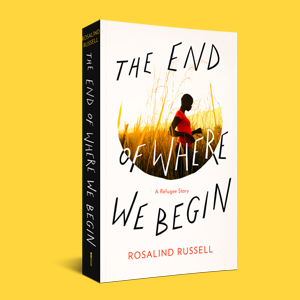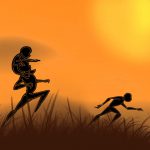The first house that I recall living in was a two-roomed house. My recollection of the house was that it was big, but looking back now, I realize it was a small house that was inhabited by four people. Two adults and two children. The bedroom had two beds, one bigger than the other, and a crib. The crib was for my baby sister and the other bed was for my mother and stepfather. The smaller bed belonged to me. Our clothes were neatly packed in suitcases that were pushed under the beds. We cooked on the tiny veranda, and there was no fridge to store food. There was a small bathroom at the end of the house but the latrine was outside. By many standards, we were poor. But after reading this story, I was confronted with my privilege because I had a lot more than what the people in this story had.
I am not a fan of non-fiction books. When I first started to read books, I discovered that they were portal to world far away from the one that I inhabited. In these magical worlds life was fair and dreams were valid and endings were happily ever after. So, as a way to bury my head in the sand, I took to fiction like a babe takes to the breast. This book is the first Creative Non-Fiction I have read in a long time and it tells a story of resilience in the face of unimaginable trauma.
I have never lived through a war. Never had to walk miles in fear of my life. Through the eyes of Veronica, Lillian and Daniel, coupled with the wonderful storytelling of the author, I was taken to tumultuous birth of the world’s youngest nation, South Sudan. With descriptive and nuanced story telling, I was able inhabit the world of these people, as a spectator. The story wasn’t clinically told as most of the refugee reports are, it was filled with colour and emotions. I was able empathize with these people.
History often paints the conqueror in savior tones, but the lives they ruin are never really highlighted. They are just collateral damage on the way to a victory. The lives lost are just a statistic. The ones who have had their lives upended are also just a statistic. What this book does is so well is highlight the stories of these otherwise forgotten people. The book puts a face to the plight many people suffer that us, in our comfy lives would not even begin to comprehend. This is an important and beautiful book that speaks to the power humanity. And the will to survive when faced with the unimaginable.
The book follows the three lives Daniel, Lillian, and Veronica. Each of them goes through a lot that brings them to the refugee camp in Bidi Bidi. Each of them suffers unimaginable loss but through resilience and the unbreaking nature of the human spirit, they are able to go on living. Rosalind takes through 8 years of the lives of Daniel, Lillian, and Veronica. Highlighting their triumphs, their loves and losses, their trauma. Their joy and the strength they have. It also highlights the work that was done by the camp counsellors in helping the refugees confront their trauma and start to heal the wounds brought on by all that they went through in the civil war. The book does a good job of highlighting the political situation in South Sudan through the understanding of these three people. And it does so without taking sides.
I give this book five stars.
This post was created with our nice and easy submission form. Create your post!





